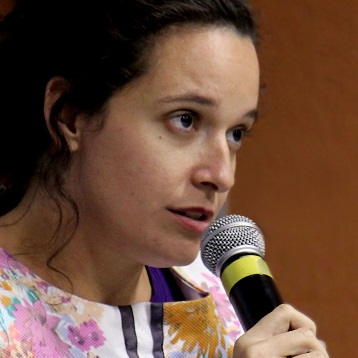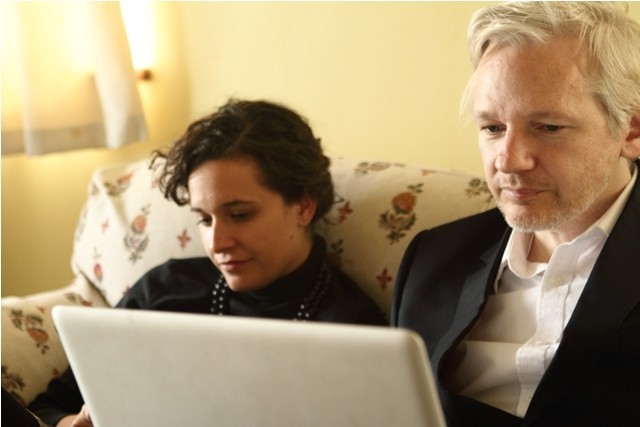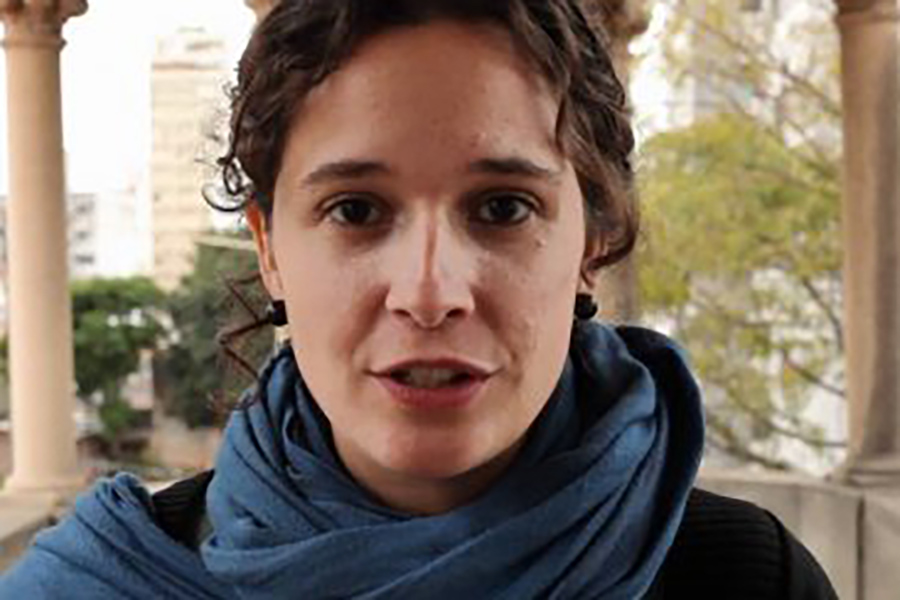After working with Wikileaks in 2010-2011, Natalia Viana co-founded Agência Pública, the first agency of investigative journalism in Brazil. Although only six years have passed since then, Agência Pública has become the third most awarded media outlet in the huge country of Brazil, collaborating with the biggest international medias such as BBC, The Guardian or Sunday Times.
Throughout more than eighteen years dedicated to journalism, Natalia Viana was awarded several prizes, such as the Vladimir Herzog Prize of Human Rights in 2005 and 2016 or the Gabriel García Márquez Prize in 2015.
Today she is telling Iravaban.net about her own experiences, as well as the current situation of investigative journalism in Brazil.
– How was your first contact with the journalism world and what were your interests?
– I started in a magazine called “Caros amigos” more than ten years ago. There I learned how to do journalism and report about human rights, which is my main focus nowadays. Throughout my experience there I learned to be a journalist; investigating and writing long-form reporting about human rights abuses which are still very common in Brazil.
 – How is it to be an investigative journalist in Brazil nowadays?
– How is it to be an investigative journalist in Brazil nowadays?
– Brazil has very different scenarios. Actually within the main capitals, Sao Paulo and Rio de Janeiro, it is much safer to be an investigative journalist than if you live in the countryside. In the countryside politics is dominated by small groups. There are usually families that control politics for generations and it is quite dangerous to criticize or investigate them. In contrast, the situation is much less dangerous in the main centers, especially Rio, Sao Paulo or Brasilia, where the main newspapers provide support to their reporters. As a matter of fact, most of the investigative journalists of Brazil are in those main centers.
– What are the security measures to be taken for an investigative journalist in Brazil?
– In Agência Pública we mostly do few investigations; we send our reporters to the field and cover a lot of land conflicts in the Amazon, for instance, or issues regarding violence in Rio or Sao Paulo. We have some security measures, we work together very closely with the editors and we have some security standards. Editors have to keep us connected, we have to go with locals that have to tell us where they are all the time and finally we never pretend that we are not journalists; we take our identification everywhere we go. Of course, if we feel that the situation is too hot, our reporters just leave the scene. However, security measures depend on each organization. For instance, O Globo takes very very strict security measures, especially after one of their reporters was killed on a fabela.
– In Brazil, is it usual that journalists die while conducting investigations?
– No, this case was a very big one in Brazil. He was denouncing some drug traffic in the fabela where he was found dead. He was kidnapped and then murdered in a very bad way. He was even tortured. This was a big shock in Brazil. Since then, O Globo tried to upgrade their security measures a lot. As a result, reporting from the fabelas decreased a lot, and many situations in there are not being covered. We believe that reporters should be out in the field reporting but we need to always provide them with good security levels.
– In your opinion, what is reporting about corruption cases like in Brazil?
– Most investigative journalism in Brazil takes place in the Federal Government. State Governments are less investigated. In some cases, powerful families in the states put pressure on newspaper owners. For instance, a newspaper’s editor won’t let a journalist report on something or the journalist does auto-censorship because he knows he cannot report about a given topic or person. However, those cases are not that usual, especially if you are reporting on corruption in the Federal Government, and that is what big newspapers mostly do.
For instance, during Dilma’s presidency, a lot of reporting about corruption was coming out and in Temer’s presidency as well; most of the corruption scandals came from the press or from public ministries that were doing an investigation and that leaked the facts to the press. There is no censorship there.
– Was Agência Pública the target of pressure or threats from those local governments?
– No, although we have received intimidation or warnings. Reporters are sometimes advised to be careful in the streets because a car might hit them. However, our first reaction to that is that, when the reporter feels insecure, we remove him from the field and then we try not to give so much credit to it because this is a way of intimidation and, if we show that we are intimidated and we stop our reporting, they would have done their job. We have never stopped the reporting.
– Do you use data journalism in your investigations?
– We use data journalism but we are not experts in that. Moreover, we are trying to build more capacity within Agência Pública and report more using data. We always use data; documents, interviews, field interviews and other forms of evidence, but we have few stories born from data. Now we are trying to hire data journalists because we want more of that. We are aware of its importance and there is a vast amount of data; the stories they could bring with them are not the common stories that you could hear in the streets.
Recently, I was editing a story written by one of our reporters. What he did was comparing the value of the land in the fabelas with the patterns of the common fires that occur in the fabelas of Sao Paulo. He noticed that it is four times more likely that the highly valued lands get hit by a fire than the less valued fabelas. This is one of the stories where data can help a lot in understanding patterns and pointing out the solution of a mystery. The data shows that there is some relation without stating that this is necessarily the reason. Thus, it allows us to go into further investigations and maybe contributes to finding a solution.
– Another example is that we compared the databases on requested land titling by private land owners in the Amazon with the databases of indigenous lands. We found out that there were hundreds of lands titled by the State actually within indigenous lands. This is a lawful conflict because you cannot have a private farm on an indigenous land. We could do that because we could work with big data.
– In your experience, would you say that it is difficult to get access to databases or resources of data in Brazil?
– Actually, a lot of data is being produced in Brazil. However, there is not enough data journalists, and even fewer journalists are looking into data from the human rights perspective. There is a lot of investigation on corruption in the Federal Government and there is a big amount of data on this matter but not in terms of human right issues or those regarding local government.
– Following the questions on data analysis, how was the experience of translating and working with the Wikileaks documents in 2010-2011?
– I worked closely with the team that was coordinating the leak. It was very interesting because they already had an agreement with European newspapers, The Guardian, Le Monde and so on. Those newspapers were going to be reporting about countries of South America from their perspective.

As they knew that it wasn’t going to be sufficient, they wanted to help to design the strategy for each country, so I did for Brazil. There were more than 3,000 documents just from us. It was great work and I am very proud of it. Wikileaks really impacted the work of journalism since then; you just need to see that in ‘Panama Papers’ and other leaks, journalists were using basically the same modus operandi that Wikileaks created.
– In your experience, would you say that Wikileaks has been your biggest success as a journalist?
– I think Agência Pública is an extremely great accomplishment. In 2016, it was the third most awarded media outlet in Brazil, and Brazil is huge! We only fall behind O Globo that is a multi-million dollar corporation. That shows that we are doing good journalism. Personally, I am also very proud of the article that I wrote about indigenous suicides in the north of Brazil for which I received the Gabriel Garcia Marquez award in 2015.
– Finally, how is Agência Pública enhancing investigative journalism in Brazil?
– Agência Pública has opened a cultural center for journalism in Rio de Janeiro called Casa Pública. Casa Pública functions as a support system and a focal point for production and discussion of independent and innovative journalism in Latin America. In addition, we also receive young journalists from all over the world who are interested in reporting about human rights in Brazil through a residency program. The latter also offers free housing and mentorship to the participants, in addition to support from Agência Pública while drafting their stories.
José Nicolas Dominguez Mendoza,
EVS Volunteer at the Armenian Lawyers’ Association















